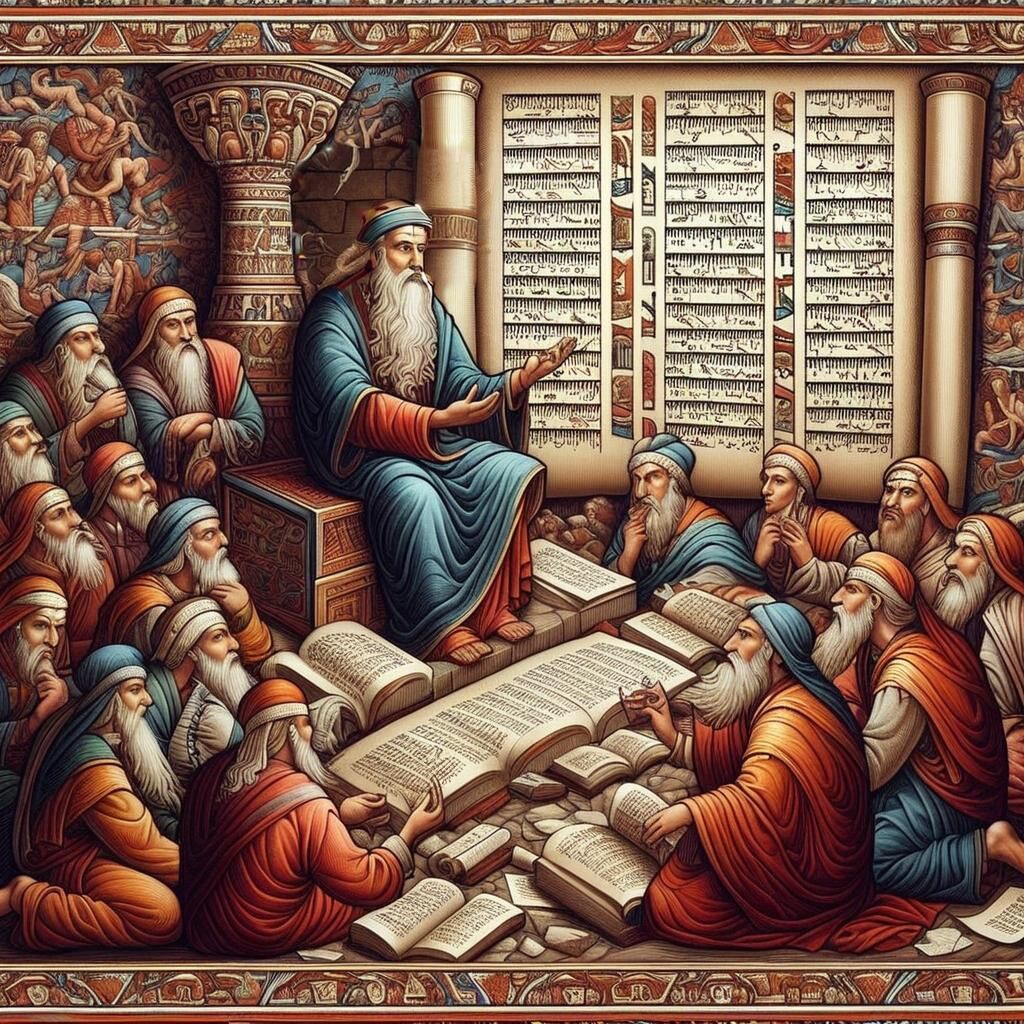Greetings, saints of the Most High! Welcome to another installment of the Messianic Torah Observer. Today, we delve into the intriguing topic of our Melchizedekian Priestly Pedigree, focusing on Jasher’s hidden chronicles.
In Part 3, we explored the theological implications of the Avram-Melchizedek encounter, discussing the dual offices of priesthood and kingship, the blessing conferred upon Avram, the significance of tithing, and the mysterious nature of Melchizedek. We also examined various religious perspectives on Melchizedek, including those from Catholicism, Islam, and Messianic Judaism.
Jewish legend and tradition often identify Shem, Noah’s righteous son, as Avram’s Melchizedek. However, there are several issues with this theory, including the lack of canonical biblical evidence and the improbability of Shem’s lifespan overlapping with Avram’s. Despite these concerns, the book of Jasher perpetuates this connection, presenting a narrative where Shem is indeed Avram’s Melchizedek.
Jasher’s account embellishes the biblical story, referring to Melchizedek as Adonizedek and describing a community meeting with Avram, bearing bread and wine. Interestingly, Jasher omits Melchizedek’s blessing of Yehovah, a curious detail given some ancient rabbinic opinions.
The narrative continues with Shem passing his prophecy school to Eber, his great-grandson, while the Melchizedekian priesthood is conferred upon Avram. This lineage, according to Jasher, includes notable figures like Adam, Enoch, and Noah, culminating in Avram.
However, the Jasher narrative raises questions about the authenticity and accuracy of these accounts. The Melchizedekian priesthood, as described in the Torah, operates outside biological heritage lines and temple sacrificial systems, foreshadowing the Spirit and Truth worship Yeshua spoke of.
Despite the conflicts between Jasher’s and the Torah’s accounts, we can glean significant insights into our Melchizedekian priestly pedigree. Concepts of righteousness, priestly conduct, obedience, and steadfast commitment to the faith form the foundation of our priestly calling. As students of Yahoshua’s Great School of Prophecy, we are in a season of training and preparation for our future roles in the Kingdom of Yehovah.
In conclusion, while I have my reservations about Jasher’s account, it offers valuable lessons about the godly elements that make up our Melchizedekian priestly pedigree. As we continue this series, we will explore these elements further, preparing us to serve as Melchizedekian kings and priests in the coming Kingdom of Yah.
May you be most blessed, fellow saints in training. Let us embrace our calling and prepare for the roles we are destined to fulfill.
The Un-Silenced Women of Paul’s Ministry-Part 8 of the Paul and Hebrew Roots Series
Many female leaders were associated with the Apostle Paul’s ministry. We highlight some of those great first-century women of the Body of Messiah.
When Evil is Considered Good–The Hypocritical, Evil and Demented Mindset of America Today
What are the challenges facing today’s Torah Observant Disciple of Yahoshua in America Today?
The Unsilenced Women of the Bible-From Torah to the Conversion of Paul-Part 7 of the Paul and Hebrew Roots Series
The Pauline Passages of Question So as to re-establish or restate the issue at hand as it relates to Paul’s views about women in the Body and Assemblies of Messiah, the primary passage in question is as follows: “Let your women keep silence in the...
Parashat Mishpatim Judgment-Property and Love of Neighbor
This Week's Torah Reading In continuing my travels through this week's Torah Reading, I came upon Exo. 21:28-36. I found endless truths and spiritual applications that I am so happy to share with you today. The Consequences of Negligence This passage in a narrow sense...
Parashat Mishpatim Judgment-Murder-Abortions-Sanctuary
Timeliness of This Week's Torah Reading This week’s Torah Reading could not have been more timely. And I was compelled to respond in the wake of the news we’ve received over the last couple weeks regarding the legalization of late term abortions on demand. And just...
Parashat Mishpatim or Judgments-Debt and Slavery
Concerning the Treatment of Slaves by Hebrews The first portion of this week's Torah Reading deals with the issue of Hebrews owning slaves; particularly Hebrew slaves (Exo. 21:1-11) . According to this passage, if a Hebrew acquires a Hebrew slave, they would serve...
To Call or Not Call on the Name of the LORD
What Does it Mean? What does it truly mean for a would-be disciple of Jesus Christ (ie., Yahoshua Messiah) to call on the Name of the L-rd? Is it simply an utterance whereby the would-be disciple utters or invokes the actual Name or Title of the Divine One? Or is it a...
Paul-Emancipator or Subjugator of Women-Part 6 of the Paul and Hebrew Roots Series
This is Part 6 of our multi-episodic series on Paul and Hebrew Roots. This installment is entitled: “Paul: Emancipator or Subjugator of Women.” I Corinthians 14:34, 35, and 1 Timothy 2:11,12 have long challenged my sensibilities and understanding of how women are to...
No Pagan Links to Catholicism and Christianity
Pagan Links to Catholicism and Religion in Doubt I have, of late, become somewhat concerned over what I see as growing support by a good many leaders within and without our Faith for there being no pagan links to Catholicism and Protestant Christianity. And how are...
Paul Opposing God On Issue Of Circumcision?
A Matter of Circumcision or No? As I was watching Kenny Russell's (Bulldozer Faith) most recent Sabbath teaching entitled "Press On!," the text of which he based his message being Philippians 3, I became fixated on verses 2 and 3 of that chapter. It is here that Paul...

